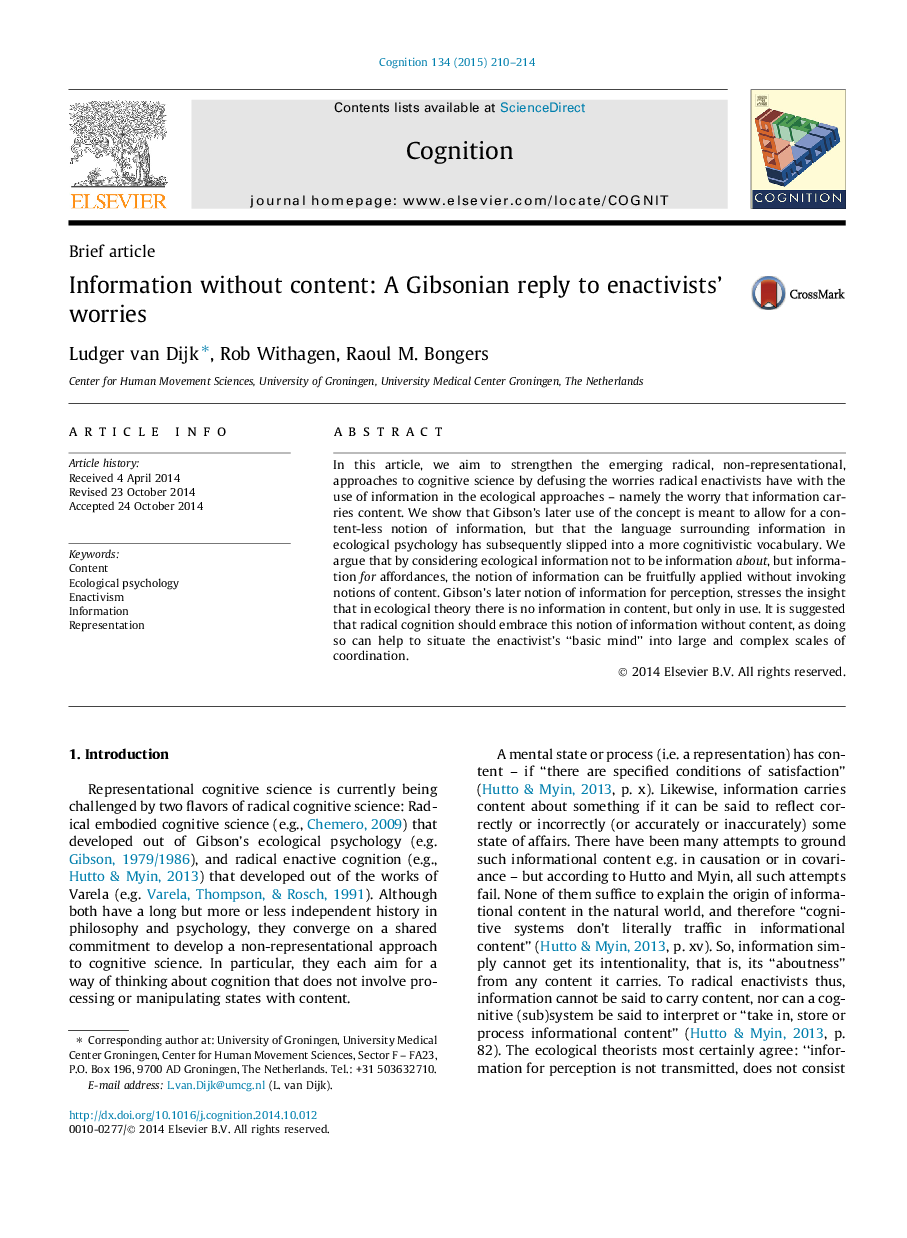| Article ID | Journal | Published Year | Pages | File Type |
|---|---|---|---|---|
| 7287656 | Cognition | 2015 | 5 Pages |
Abstract
In this article, we aim to strengthen the emerging radical, non-representational, approaches to cognitive science by defusing the worries radical enactivists have with the use of information in the ecological approaches - namely the worry that information carries content. We show that Gibson's later use of the concept is meant to allow for a content-less notion of information, but that the language surrounding information in ecological psychology has subsequently slipped into a more cognitivistic vocabulary. We argue that by considering ecological information not to be information about, but information for affordances, the notion of information can be fruitfully applied without invoking notions of content. Gibson's later notion of information for perception, stresses the insight that in ecological theory there is no information in content, but only in use. It is suggested that radical cognition should embrace this notion of information without content, as doing so can help to situate the enactivist's “basic mind” into large and complex scales of coordination.
Related Topics
Life Sciences
Neuroscience
Cognitive Neuroscience
Authors
Ludger van Dijk, Rob Withagen, Raoul M. Bongers,
